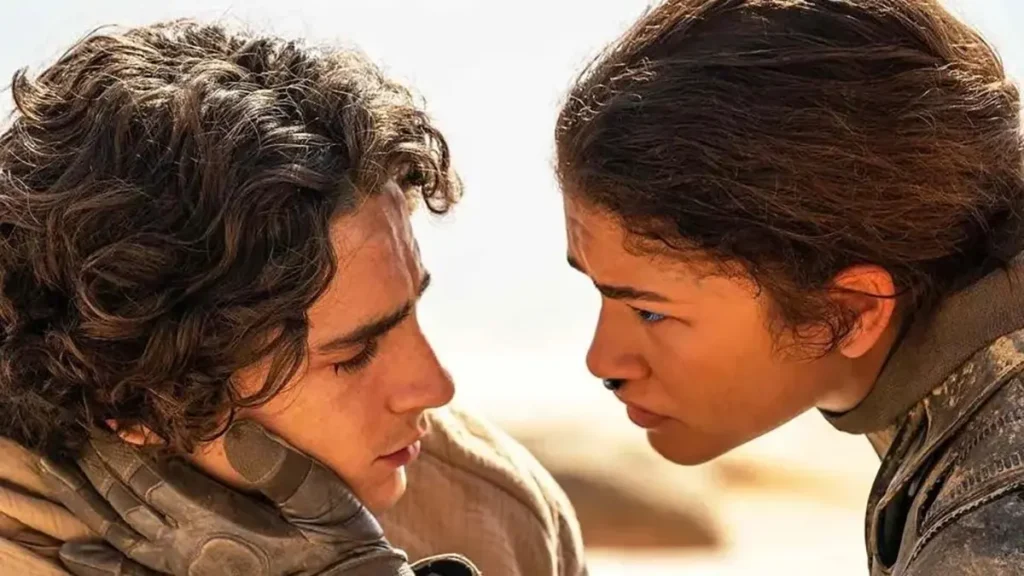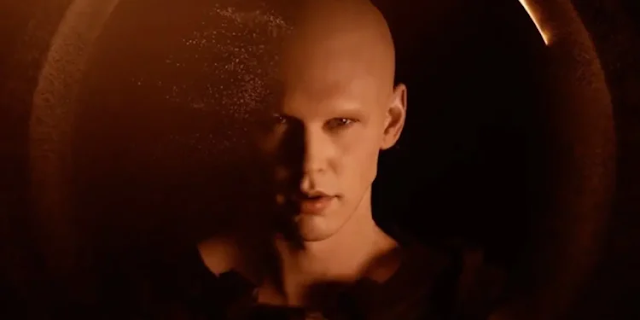The DUNE Movies are Both Epic and Underwhelming
Herbert, still considered one of the most important pieces of science fiction storytelling. Popular cultural icons from Star Wars to The Matrix, even to an extent 2001 A Space Odyssey, owe their inceptions to Dune from plot layout to world-building.
A New Direction for Dune
After the unfavourable attempt from David Lynch, Dune finds itself in the hands of one of the greatest directors of the current generation, one whose resumé seemed ideal for what Herbert set in stone. I read the book in lockdown and it’s an excellent read, Herbert was undeniably a genius. Therefore, along with an ensemble of superstars, the Dune movies seemed destined to be the generation-defining sci-fi epic, at least that is how many have deemed it. As expected, both movies have been marvels with their scope, spectacle and cast. Aesthetically, it is perfection! Substance, however, is where we run into problems.
Visual and Aural Spectacle
As said before, this is a gorgeous-looking movie! The eyes are in for a sizeable treat as D.O.P. Greig Fraser creates lush colours for the picture, whilst sets project grandness of size and costumes impress with grit and detail. I appreciate how almost all of what we’re seeing is practical and in-camera, unlike Marvel or DC’s recent overdose of computer effects that will age their films like milk in the desert.
Additionally, the scope and sound design is a heavenly experience for the senses, especially when immersed in cinemas. Everything, as it should do with a cast this colossal, feels mountainous. The score from Hans Zimmer is a sandworm in itself, in that it swims through your ears and coils around your brain. But my favourite aspect is the sound design – this is something to be appreciated in cinemas, especially a final duel where the music sits on the bench and you can almost hear a pin drop from the deafening silence.
Stellar Cast Performances
The Dune movies cast of A-listers all deliver, particularly the newcomers for Part Two. Austin Butler, who plays psychopath Feyd-Rautha (previously played by Sting in 1984), is the top of the litter. He seizes the crowd’s attention through a charisma sandstorm, the most enticing presence among a cast that includes Rebecca Ferguson, Josh Brolin, Javier Bardem and Stellan Skarsgaard (the latter of whom Butler shares scenes with). Truly, with this and his Oscar-nominated Elvis portrayal (my pick for the win a year back), we have a fabulous actor with a career that compliments him on our hands. Not far behind are newcomers, Florence Pugh and Christopher Walken, in smaller roles than you would initially believe but their impact still stands as a testament to their talent. Lea Seydoux, through just one sequence, is a stand-out. Those from the first chapter are still brilliant, particularly Bardem who provides unexpected yet natural comedy, but the new arrivals, no matter how sparse their appearances can often be, are those I remember.

Faithful Adaptation with Flaws
Beneath that, Villeneuve is a clear lover of Herbert’s writing and he adapts the essential story points sturdily. The arc of Paul Atreides (Wonka’s Timothée Chalamet) is as thrilling as it was in the book. Far from a clear anecdote of good versus evil, it is a striking depiction of complex characters pressured by political upheaval in times of war and dynastic conquest.
Emotional Connection and Pacing Issues
That being said, the emotional connection between me and the film is still missing.
Watching both parts now, I have thought incessantly of how empty I felt. I think a lot of that has to do with the following two points.
Firstly, Villeneuve stated recently that audiences could watch this without having seen the first. I’m not so sure. I am still of the opinion that Dune: Part I is only truly immersive to viewers if they have read the novel. This is most certainly the case here, as well as having seen the previous chapter. Both require one’s utmost attention to a clear fault. I feel as though elements like the plot, lore and atmosphere (which a film medium can benefit from) swallow up the development of the characters, which is galaxy-sized in the novel.
This leads to the second point that, even as someone who has read the book, l found myself deflated by some key scenes and character interactions that are rushed over or left out entirely. As a result, the development that complex protagonist Paul (Wonka’s Timothée Chalamet) receives is quite rushed.
Paul appears to spend several months with the Fremen here before rising to lead them. The tragic devolution Villeneuve presents on the screen is only a fraction of the tragic turmoil Paul undergoes, along with his love interest Chani (Zendaya), to justify Herbert’s ending.
The big battle at the end also felt rushed. The scavenging good guys make short work of the supposed powerful Harkonnen forces and the super-elite Sardaukar, whose role in the book is lost in translation. It felt extremely anticlimactic. The most frustrating of this risky pace was my favourite character in the novel, the villainous Vladimir Harkonnen (Stellan Skarsgard). Not that Skarsgard doesn’t give an excellent portrayal, but it’s just that his scenes, few and far between at that, play out as if they have a set timer on them, to make way for more plot.
The Dune movies can also feel slow as it spends a long while with Paul and the Fremen. This section, approximately forty minutes in length, is sluggish and I feel as though Paul is not as interesting as the characters surrounding him. Sure, the development he receives is perfection and elevates him in hindsight, but sitting through the progression in the present is almost not worth it and the side characters are what keep him afloat.
A Divisive Reception
It sounds like I’m in the minority here as people have fallen in love with Part Two as much as they did the previous film. Denis Villeneuve continues to be one of the more engaging directors in modern cinema and he and his entire team did an admirable job bringing this space opera to the big screen. Personally, though, it isn’t quite the absolute perfect transition to the screen I would hope for. However, in enough respects, it lives up to an epic science-fiction chronicle made only for cinemas.



Comments
Post a Comment